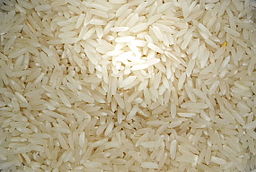This week, read about a superfit 80-y-old, exercise and cancer, Health Canada endorsing pseudoscience, skinny rice, the myth of high-protein diets, and more.
Case Study: How to be 80-year-old with the VO2max of 35-year-old

Volume 2015 (2015)).
Norwegian researchers describe the physiology of an 80-year-old man with a very high VO2 max (50 mL·kg−1·min−1), similar to most 35-year-olds. They attribute the man’s exceptional fitness to a lifelong history of physical activity, that included endurance training and regular strength training. Though case studies don’t have the power of research investigating many individuals to draw conclusions, research does support lifestyle choices as critical to maintaining vitality, health, and fitness (endurance exercise and strength training see key), and a large body of research shows that exercise keeps us young. (Case Reports in Medicine Volume 2015 (2015)).
How Exercise May Aid Cancer Treatment. A new study suggests that aerobic exercise during cancer treatment may make chemotherapy more efficient and slow the growth of breast tumors. Researchers conducted a series of experiments in mice predisposed to breast cancer: mice who ran on a treadmill were more responsive to chemotherapy and had smaller tumors than sedentary mice. The researchers believe that the increased blood flow to tissues during exercise is in part responsible for the benefits observed. (Gretchen Reynolds, New York Times, reporting on J Natl Cancer Inst., March 2015).
 Scientists have discovered a simple way to cook rice that dramatically cuts the calories. The method causes chemical changes in the rice, that turn the “digestible” starch (quickly digested) into “resistant” starch, which is generally healthier and less caloric (it “resists” digestion, so it isn’t fully broken down or absorbed, acting a bit like soluble fiber). They cooked rice normally, but when the water was boiling added fat (coconut oil – 3% of the weight of the rice – although other fats would work). Once the rice is ready, it must cool in the refrigerator for 12 hours for the starch to change. (Washington Post, reporting on meeting of the 249th National Meeting of the American Chemical Society).
Scientists have discovered a simple way to cook rice that dramatically cuts the calories. The method causes chemical changes in the rice, that turn the “digestible” starch (quickly digested) into “resistant” starch, which is generally healthier and less caloric (it “resists” digestion, so it isn’t fully broken down or absorbed, acting a bit like soluble fiber). They cooked rice normally, but when the water was boiling added fat (coconut oil – 3% of the weight of the rice – although other fats would work). Once the rice is ready, it must cool in the refrigerator for 12 hours for the starch to change. (Washington Post, reporting on meeting of the 249th National Meeting of the American Chemical Society).
Although the authors infer that this could be a food-based solution to the obesity epidemic, I think it’s better to view the research as a fascinating chemical discovery. Better to focus on ways to get people to consume healthful foods in the right portions, or if you’re interested in resistant starch, consume more beans/legumes, starchy fruits and vegetables (e.g., sweet potatoes, bananas), and whole grains.
Health Canada is complicit in peddling pseudoscience. Health Canada’s approval of natural health products with no science to back up efficacy or health claims deceives consumers and puts people’s health at risk. As an example, CBC Marketplace developed a bogus homeopathic fever remedy, put in the paperwork, and the product was approved by Health Canada. Another product approved by Health Canada are “nosodes,” marketed as alternatives to vaccines, with no proven efficacy (National Post).
Fiber-Famished Gut Microbes Linked to Poor Health. While probiotics are popular and much, eating fiber seems to be most important for gut health. (Scientific American)
 Check me out on CTV Morning Live. I appeared on CTV Morning Live this week discussing recovery for runners, in view of the Ottawa Race Weekend in May. I prepared yogurt berry parfaits and 3- ingredient granola (all that in 4 minutes!). I chose the berry parfaits because it’s a simple dish that is quick to make: and timing of food intake IS important for optimal recovery. The recipe features healthful carbs to replenish muscle glycogen (oats/granola and berries), protein to help muscle repair (Greek yogurt), and almonds for the healthful fats and other benefits. Read more about eating for optimal performance here.
Check me out on CTV Morning Live. I appeared on CTV Morning Live this week discussing recovery for runners, in view of the Ottawa Race Weekend in May. I prepared yogurt berry parfaits and 3- ingredient granola (all that in 4 minutes!). I chose the berry parfaits because it’s a simple dish that is quick to make: and timing of food intake IS important for optimal recovery. The recipe features healthful carbs to replenish muscle glycogen (oats/granola and berries), protein to help muscle repair (Greek yogurt), and almonds for the healthful fats and other benefits. Read more about eating for optimal performance here.
The Fitness Guru of the Trucking Industry. How someone in one of the most unhealthiest professions creatively gets his exercise. (The Atlantic)
Myth of High-Protein Diets. Stanford’s Dean Ornish‘s rebuttal against the “carbs are bad” trend. Ornish looks at the research behind whole-foods and plant-based diet to prevent disease. (New York Times).
________________
Rice picture by FASTILY (Own work) [CC%20BY-SA 3.0}, via Wikimedia Commons
Share This: